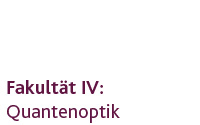European STREP PICC
Objective:
The ability to control the dynamics of quantum systems with increasing size and complexity is a prerequisite for the realisation of quantum technologies. Among the physical systems considered so far, trapped ions, laser cooled to form string-like ordered structures, occupy a prominent position in the quest for the realization of quantum information processors. With this system, indeed, the basic logic gates of a quantum computer have been successfully demonstrated, and entangled states of several ions (a "quantum byte") have been experimentally realized and fully characterized. These formidable achievements are based on the high degree of control of the internal and external degrees of freedom that can be achieved for small numbers of trapped ions. The challenge of realizing large-scale processors and quantum simulators based on ions will, however, require that one deals with more complex structures, which may include mesoscopic ordered ion ensembles, i.e., ion Coulomb crystals. In this regime, it is expected that the effect of noise will grow in importance and the control techniques, which have been so successfully applied to small numbers of ions, will be inefficient. This raises the timely issue of identifying novel and efficient strategies for controlling the quantum dynamics and manipulating the quantum state of ion Coulomb crystals.
This proposal represents a joint theoretical and experimental effort whose aims are (i) to identify tools for controlling ion crystals as their size is scaled up, (ii) to develop strategies for implementing controlled quantum dynamics of mesoscopic ion Coulomb crystals in a noisy environment and (iii) to explore the capability of ion Coulomb crystals as quantum simulators. The long-term vision underlying this proposal is to engineer quantum correlations and entanglement in ion Coulomb crystals in order to exploit them for technological purposes of different kinds. It is expected that this effort will pave the way for what could be the realization of the first specific-purpose, large scale quantum processors, complementing existing efforts with the alternative system of neutral atoms in optical lattices. Furthermore, besides being a new hardware platform for quantum simulators, scalable entangled ion Coulomb crystals represent a very promising system to realize entanglement-enhanced metrology with precision exceeding not only that of classical systems, but also of systems comprised of only a few entangled ions, thereby contributing to other ICT-related quantum technologies beyond information processing.
Partners:
Universität des Saarlandes, Prof. Morigi, Germany
Universität des Saarlandes, Prof. Eschner, Germany
Imperial College, UK
University of Aarhus, Denmark
Tel Aviv University, Israel
Universität Ulm, Prof. Plenio, Germany
Universität Ulm, Prof. Calarco, Germany
Universidad Complutense de Madrid, Spain
Max-Planck-Institut für Quantenoptik, Germany
